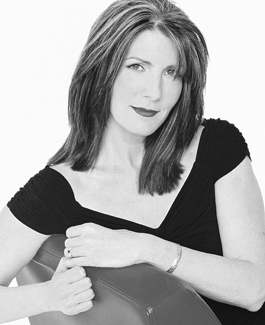home | north bay bohemian index | music & nightlife | band review

Fueled: Country maven Kathy Mattea's newest release examines her family's history with mining.
Carbon Credit
Kathy Mattea mines the history of coal on her new CD
By Bruce Robinson
For most Californians, coal is an abstraction. The nearest coal mines are a time zone away, and California's power comes mostly from natural gas systems and hydro plants. But it's a different story in South Charleston, W.V., where Kathy Mattea was born and raised.
Coal mining was a central part of Mattea's family history, not to mention the lifeblood of her hometown and the surrounding area. So even as she built a solid career as a successful country singer and recording artist (her chart-topping singles include "Goin' Gone," "Eighteen Wheels and a Dozen Roses" and "Burnin' Old Memories"), she had, in the back of her mind, a notion to devote an album to that heritage.
"I had a short list of coal songs," she says by phone from the back of a tour bus in Cambridge, Mass., where she is in the middle of an East Coast and Southern states tour. "And every once in a while I'd think about making this record." But when 12 miners perished following an underground explosion in the mine at Sago, W.V., in January 2006, Mattea says, "I thought, 'You know, I've got so much emotion about this, it would probably be the right time to go make this record and plow this emotion into the music.'"
The result is Coal, a spare, unflinching set of songs that Mattea says embody her intention "to tell the story of a sense of place and the people from where I'm from." Yet it wasn't an easy project.
"I thought it would be kind of an interesting record, and historical, and it would be fun to do something kind of stripped-down," she says, "but what I found was I stitched together pieces of my own story and my family's story. I reclaimed stories about coal in my own generation that I had lost, and a sense of connection with place and people. Hearing some of the old stories retold and hearing some new ones, it became so much more than just a record."
Building on her original short list, Kathy went through hundreds of songs before choosing the 11 that comprise Coal, mixing stark traditional material from Jean Ritchie, Merle Travis and Hazel Dickens with equally powerful tunes from contemporary writers Darrell Scott and Billy Edd Wheeler.
"My goal was to find something that had some musical diversity," she explains. "I wanted the record to have a musical narrative to it, and I wanted to cover a lot of different points of view about coal." Thus there are songs about death and illness in the mines ("Lawrence Jones," "Black Lung") alongside songs about miners' pride in their work ("Coal Tattoo") and love of the land ("Green Rolling Hills").
In addition to their interlocking subjects, the songs are unified by the understated, mostly acoustic settings crafted by producer Marty Stuart and a core trio of sympathetic players. "He is steeped in hillbilly music," Mattea says of Stuart. "He's a historian and appreciates all aspects of it, and also has a commercial career like I do, walking that line between commercial and traditional.
"More importantly," she continues, "I knew that I could trust him. When I started, I thought, 'I don't know if I can do this.' I've been singing a certain kind of music for 20, 30 years, and this stuff, in order to sing it right, you really have to strip away a lot of layers." It was Stuart's honesty, she says, that guided Coal's strong, understated performances and allowed the lyrics' anger, fear, despair and longing to shine through.
Buried in the disc, deep as a vein of anthracite, are Mattea's personal environmental concerns. The singer was one of the first trained by former vice president Al Gore on his climate-change, call-to-arms slide show, which she readily delivers when asked. However, Mattea generally keeps her activism and music separate.
"I think the music stands on its own," she says. "There are so many points of view to this music; there're the social justice issues, the sense of place, the sense of my family, the sense of history. I'll sometimes talk about how we're all connected to coal by virtue of the fact that most of the electricity in this country comes from coal, so we're all inextricably linked to it. But beyond that, I feel like the music tells the story for itself."
Send a letter to the editor about this story.
|
|
|
|
|
|